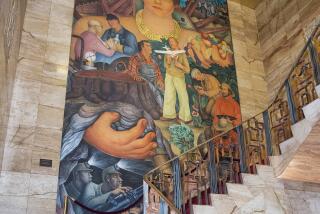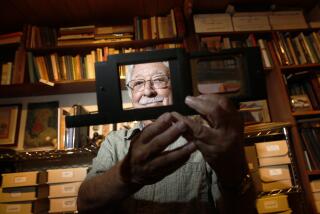Leonis Reigned as the ‘King of Calabasas’
- Share via
The tall, imposing Miguel Leonis, along with his Indian wife, Maria Espiritu Chijulla, reigned over much of the southwest Valley in the 1800s, with Leonis becoming one of the 10 richest men at the time in Los Angeles County.
Espiritu was a widow with a young son, Juan Menendez, when the Basque immigrant from the French Pyrenees came into her life in 1857. A one-time smuggler, Leonis worked as a shepherd near Espiritu’s family’s El Escorpion rancho, now the Platt Ranch subdivision.
They entered into a common-law marriage in 1859 and Espiritu’s livestock and 1,100 acres of land--gained as the daughter of a prominent Indian of San Fernando Mission--became his.
After their only child, daughter Marcelina, died in 1879 of smallpox at 20, and when a county survey determined their home was out of El Escorpion’s boundaries, the couple moved south to Calabasas.
It was there, at Leonis Adobe, that he became known as Don Miguel. Area residents also came to call him “El Basquo Grande,” and in later years, the “King of Calabasas.”
Leonis built on Espiritu’s inheritance by strong-arming squatters who dared try to make a claim, despite having a tenuous legal hold on the land himself.
He also was party to a number of lawsuits over property, many of which he lost since land title was a slippery notion at the time.
But it was following a celebration of a legal victory that he died.
Leonis was one of a group traveling in the Cahuenga Pass from Los Angeles in September 1889. At some point Leonis fell from a wagon, and was crushed by its wheels as it rolled over him.
He died three days later.
Espiritu then began a long journey through the legal system because Leonis had denied in his will that she was his wife. He referred to her as his “faithful housekeeper” and left his considerable estate, estimated to be $300,000, to his relatives.
Continuing to live at the adobe, Espiritu spent 15 years fighting for her name and for her half of the fortune. In 1905, a year before Espiritu’s death, the courts awarded both to her.
More to Read
Sign up for Essential California
The most important California stories and recommendations in your inbox every morning.
You may occasionally receive promotional content from the Los Angeles Times.










